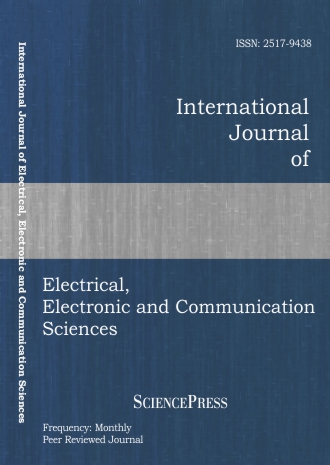
Scholarly
Volume:1, Issue: 9, 2007 Page No: 1420 - 1423
International Journal of Electrical, Electronic and Communication Sciences
ISSN: 2517-9438
1067 Downloads
Spread Spectrum Code Estimation by Genetic Algorithm
In the context of spectrum surveillance, a method to recover the code of spread spectrum signal is presented, whereas the receiver has no knowledge of the transmitter-s spreading sequence. The approach is based on a genetic algorithm (GA), which is forced to model the received signal. Genetic algorithms (GAs) are well known for their robustness in solving complex optimization problems. Experimental results show that the method provides a good estimation, even when the signal power is below the noise power.
Authors:
References:
[1] D. Thomas Magill, Francis D. Natali, Gwyn P. Edwards, "Spread